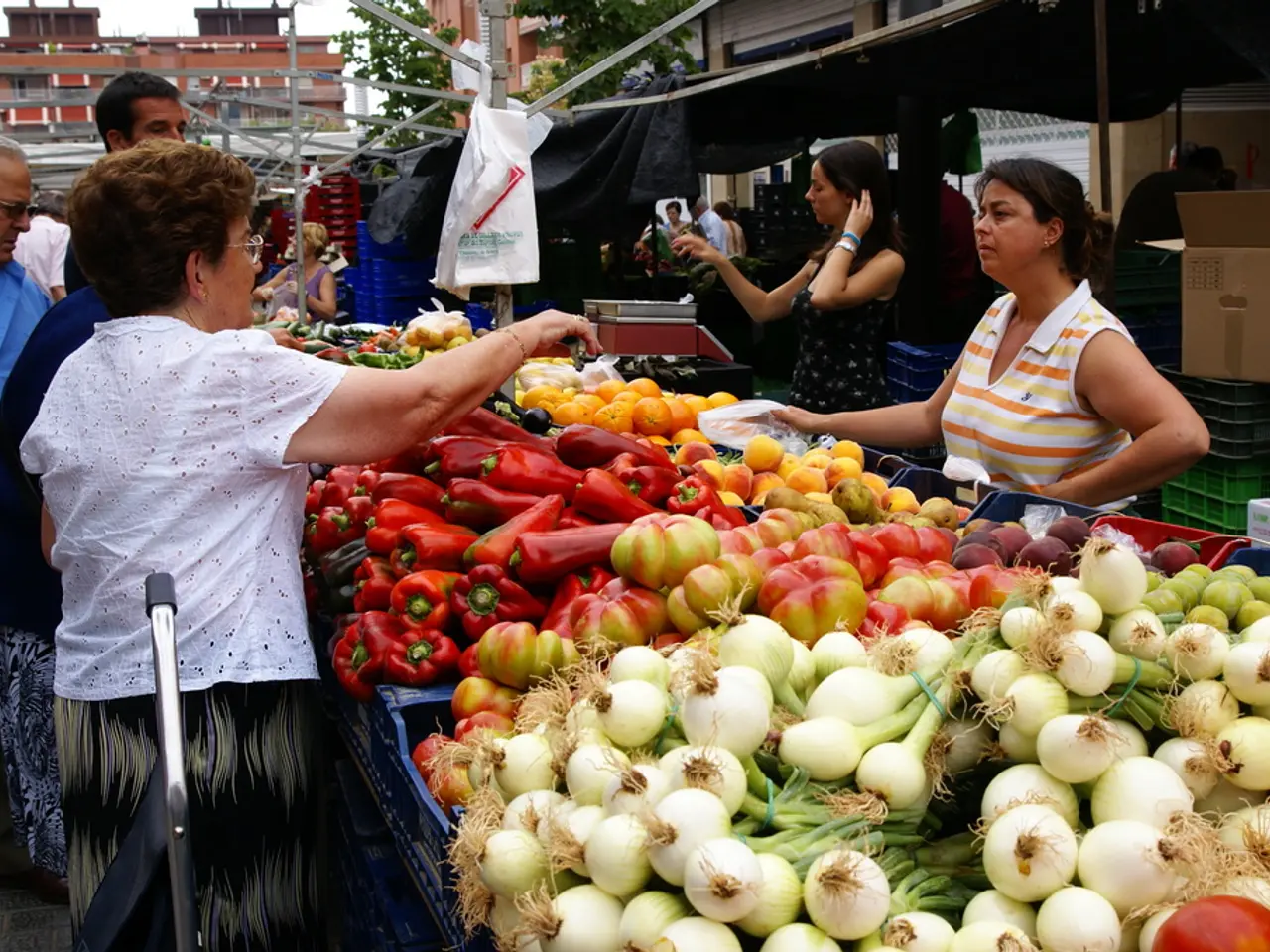Plastic's reign is on thin ice as the cold season approaches - it's time for a change
In a groundbreaking report titled "Winter is coming - plastic must go," environmental groups Break Free From Plastic and the Centre for International Law (CIEL) have recommended a significant shift in the EU's approach to plastic production and energy consumption. The report suggests reducing plastic production from 50 to 29 megatonnes (Mt) by 2030 to tackle the multiple crises of plastic, energy, and climate.
The report underscores the petrochemicals and plastics industry's significant contribution to fossil fuel consumption in the EU. In 2020, nearly 15% of the final gas consumption and 14% of the final oil consumption in the EU 27 were used to manufacture petrochemicals. Plastic production, in particular, consumes more than one-fifth (22%) of all fossil gas consumed by all European industry sectors. In Germany, nearly a quarter (24.22%) and in Belgium, more than a third (36.11%) of the industrial sector's gas consumption goes into plastics. In the Netherlands, plastic production is responsible for nearly half of all fossil gas consumed in the industrial sectors.
The largest part of the energy used in plastic production was for plastic packaging, which accounts for 40% of the end market for plastic products in the EU. In 2020, 38% of the gas and 22% of the oil used in the EU came from Russia. These statistics highlight the urgent need for action to reduce plastic production and oil and gas consumption.
The report proposes several measures to address this issue. It recommends adopting ambitious measures on packaging reduction, including a cap on overall packaging put on the EU market that would decrease over time, and the development of reuse systems, powered by ambitious and binding reuse targets. It also suggests accelerating and expanding the implementation of the Waste Framework and Single-Use Plastics Directives to reduce virgin plastic production and oil and gas consumption.
Moreover, the report calls for pushing for ambition on upstream measures within the negotiations of the Global Treaty to End Plastic Pollution, including a global cap on overall plastics production and recommendations to begin phasing down plastics production. It advises stopping the building of new fossil fuel infrastructure, including petrochemical facilities, starting with a moratorium or freeze on permitting of new virgin plastic production facilities.
The report also emphasizes the need for the EU's climate and energy diplomacy to be based on securing climate-friendlier energy access and climate justice, and to fulfill its commitments under the EU Green Deal, the United Nations Framework Convention on Climate Change (UNFCCC), and the Paris Agreement.
In response to potential gas shortages, the report suggests implementing emergency measures to restrict non-essential industry oil and gas use, particularly for producing unnecessary single-use plastics and packaging. Achieving reductions of 50% in plastic packaging and 90% in recycling would lead to a reduction of 6.2 bcm of fossil gas and 8.7 million tonnes of oil at the EU level compared to 2020.
The report also addresses the issue of the main beneficiaries of new gas infrastructure in Europe, which are established energy companies like RWE and E.ON, gas turbine manufacturers such as Siemens Energy, and gas grid operators. These investments ensure their infrastructure usage and secure their long-term interests; the primary function of this infrastructure is not mainly the supply of households but to support gas power plants and maintain fossil fuel system readiness.
Engaging with the European petrochemical industry is also a key recommendation in the report. It suggests setting up decarbonisation plans and a fossil-free future pathway for this sector, and a needed just transition for this sector. The report underscores the need for a shift towards a more sustainable and circular economy, where waste is minimised and resources are reused and recycled as much as possible.
The report is a call to action for the EU to take decisive steps towards a more sustainable future, reducing plastic production, and mitigating the climate crisis. It provides a roadmap for the EU to fulfil its commitments under the EU Green Deal and meet its targets under the Paris Agreement. The time to act is now.








